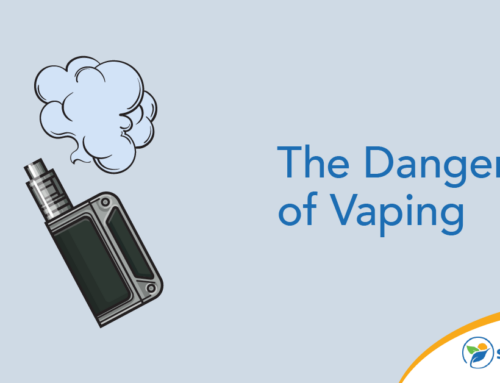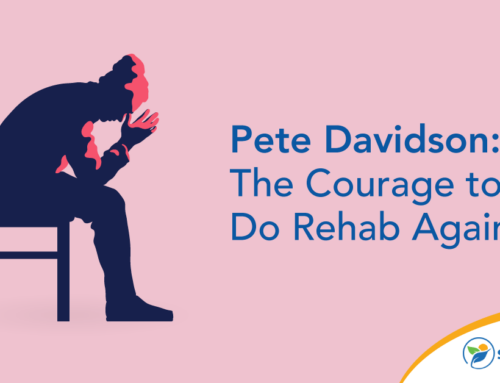Addiction recovery is a long and challenging journey. Finding the right treatment centers and programs can be a daunting prospect. Once you find the right place, intense rehabilitation programs can uncover reasons behind your addiction issues that may be difficult to face and address.
Additionally, finishing rehab and maintaining sobriety may feel like an unachievable utopia. Statistics show that up to 60% of people with addiction relapse at some point in their lives. Some fall off the wagon a few days or weeks into recovery, while others relapse after years of sobriety.
While you may expect some ups and downs during recovery, actually encountering them can be discouraging and challenge your commitment to sobriety. Fortunately, substance abuse case management exists to ensure the difficulties in your recovery journey don’t stop you from walking it.
The Substance Abuse and Mental Health Services Administration (SAMHSA) defines case management as an individualized approach that connects people with addiction to services that address their unique needs. Recovery case management can be likened to a friend who holds your hand at every stage of your life, ensuring you never feel lonely, isolated or uncared for.
Follow along as addiction specialists from Sunlight Recovery explain the role of substance abuse case management in drug rehab and where to get case managers you can trust throughout your recovery journey.
The Role of Substance Abuse Case Management: Providing Support and Coordination
Substance abuse case management is an integral part of the treatment sources, which is why 83% of recovery centers offer it to their clients. Some of the roles of case management and case managers include:
- Allowing you to participate in decision-making. Recent practice in addiction treatment places great emphasis on letting clients chart their way to sobriety. Case management allows you to choose which type of treatment you’ll undergo based on your needs and preparedness. A case manager will provide you with all possible resources, listen as you weigh each alternative and evaluate your satisfaction with the treatment methods you select.
- Providing you with a point of contact. You’ll interact with numerous specialists and organizations during rehabilitation. A case manager keeps track of your interactions and progress, ensuring you have a trusted information point whenever necessary. Having someone document your progress and inform you of the next steps lets you fully focus on your recovery.
- Offering nonjudgmental support. Recovery case management levels the playground, ensuring you get support regardless of your background. A case manager understands your language, culture, personal struggles and addiction history. You can rely on them to get you the best available care.
- Advocating for you. A case manager has the language to translate your needs and desires to the rest of your care team. They can use their knowledge of you to show other addiction specialists how to structure your treatment. They can also advocate for you in the justice and social service systems, ensuring you’re not discriminated against because of your substance abuse issues.
- Teaching you essential skills. Substance abuse case management can also help you develop the skills necessary to thrive after treatment. Your case manager can teach you directly or model behavior that shows you how to communicate assertively, advocate for your needs and collaborate with others.
Personalized Treatment Plans and Goal Setting
Case management is a process that starts when you decide to seek professional assistance with substance use disorder.
When you request treatment services at Sunlight Recovery or similar facilities, you’ll meet with a team of addiction specialists from different professions. For example, you may meet with a doctor who’ll assess the impact of drug use on your body, a therapist or social worker who’ll diagnose any co-occurring mental illnesses and a counselor who’ll determine which life skills you need to develop. Each professional will document their observations, set treatment goals and outline a care plan that addresses your unique recovery needs.
Recovery case management ensures the proposed treatment from each addiction specialist fully addresses your medical, mental, behavioral, spiritual and professional needs. A case manager helps the other professionals coordinate their care so none of your problems go unaddressed. They also monitor you throughout recovery to ensure you achieve and exceed all the goals set.
Substance abuse case management continues even after you complete active treatment. If you undergo inpatient treatment, your case manager will help you transition to partial hospitalization (PHP) or outpatient treatment. They’ll also help you find a sober companion and community resources to help you maintain the habits and skills you developed during treatment.
A case manager is invested in your long-term sobriety and will help you get back into treatment if you relapse.
Monitoring Progress and Addressing Barriers to Recovery
Because you meet your case manager very early in treatment and walk with them through every step in recovery, they know and can solve any issues that crop up.
A case manager can help you find treatment centers and programs that align with your schedule and recovery needs. They can also offer resources that improve your access to treatment, such as transportation, childcare or time off from work so you can attend rehab.
Case managers also help people in recovery find social support within and outside the treatment environment. Besides group therapy with others in rehab, your case manager may refer you to family therapy and mediation to repair relationships affected by your addiction problems. They may also suggest an alumni program to help you build friendships with people committed to active and healthy sober living.
Additionally, your case manager is an invaluable resource for social services and career opportunities in your community. They can help you reintegrate into society by ensuring you have food, shelter and employment. A case manager can also assist you in navigating the legal system if you need that service.
Encouraging Long-Term Success and Wellness
Substance abuse case management is very effective at improving addiction treatment outcomes. Information from SAMHSA shows that people who receive case management tend to be more committed to the treatment process, experience a significant reduction in substance use and have better health outcomes.
A case manager can help you find affordable treatment resources, lower the chances of relapse or overdose and avoid trouble with the law.
Sunlight Recovery has a team of compassionate case managers dedicated to your recovery and lifelong wellness. Contact us today to learn how our substance abuse case managers can walk you down the recovery path.







